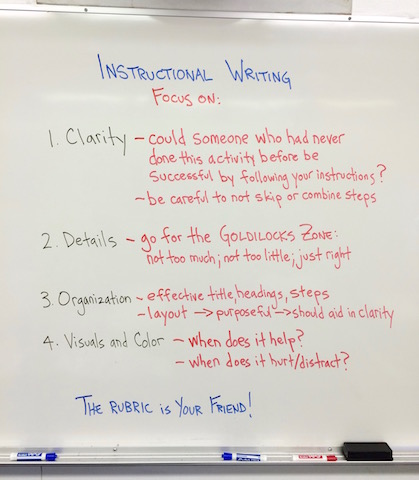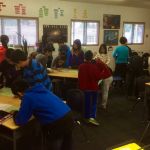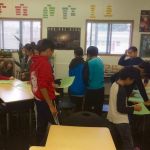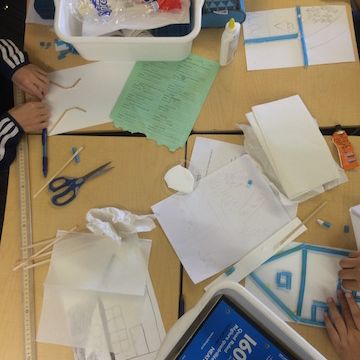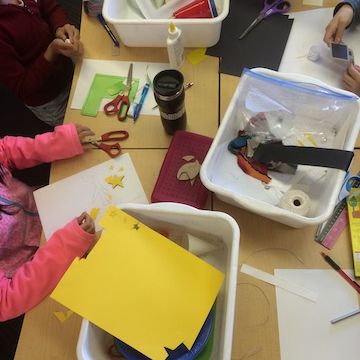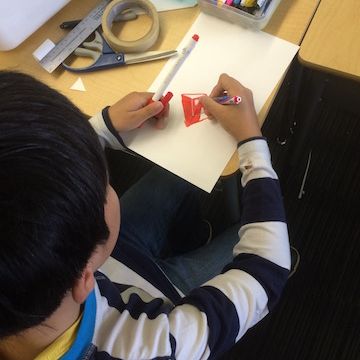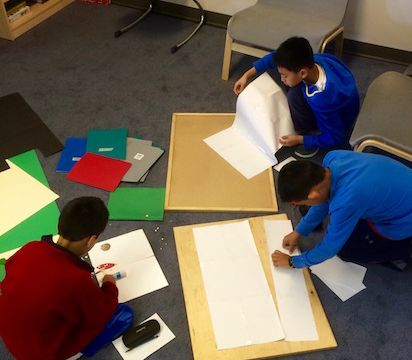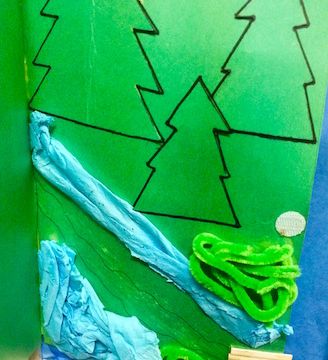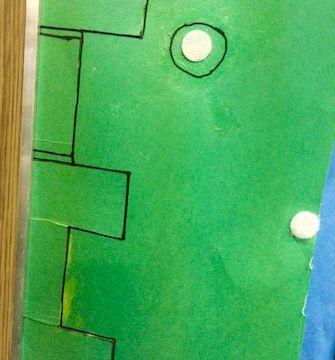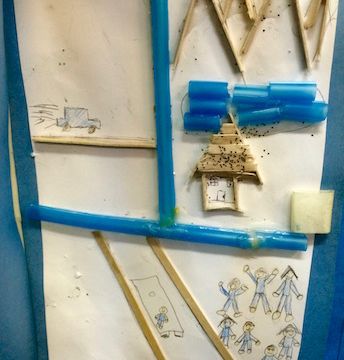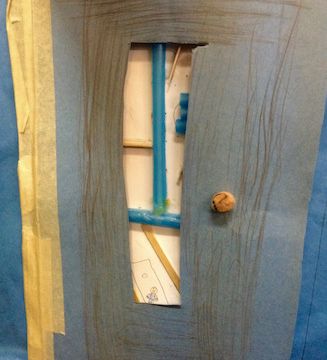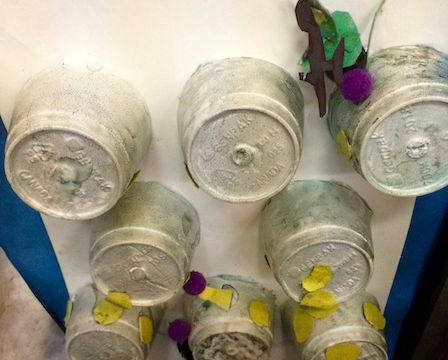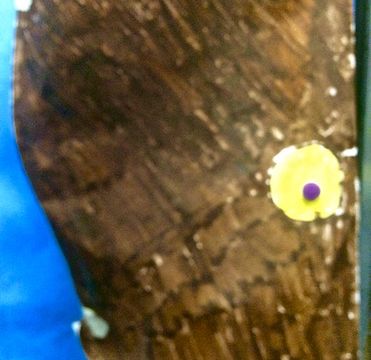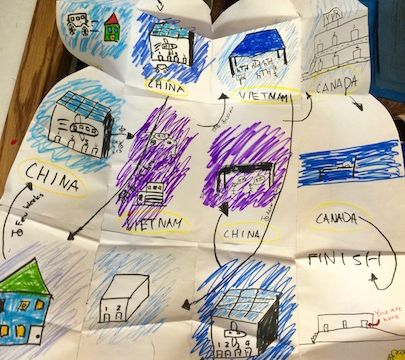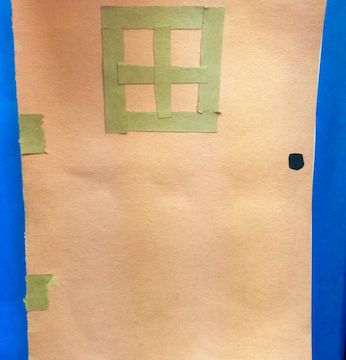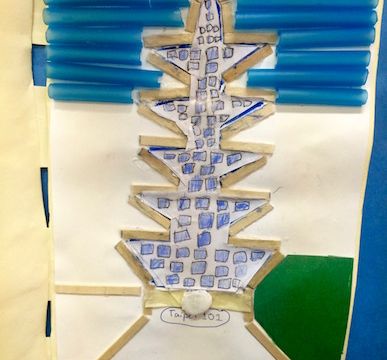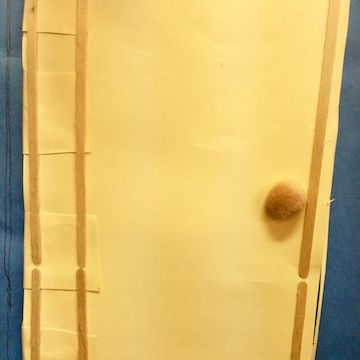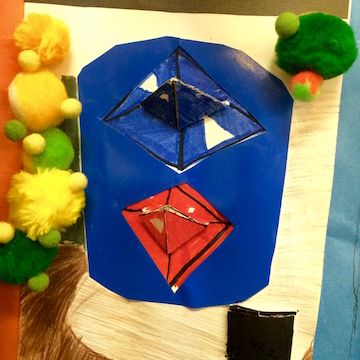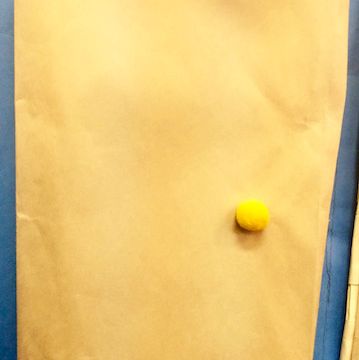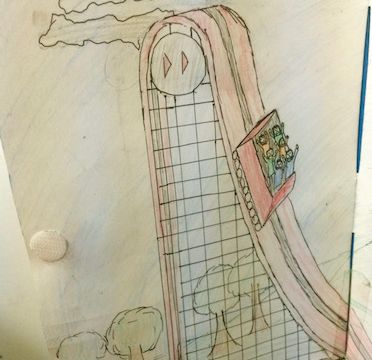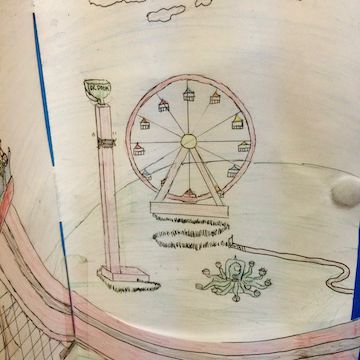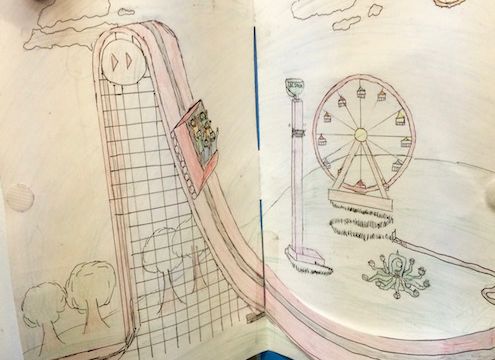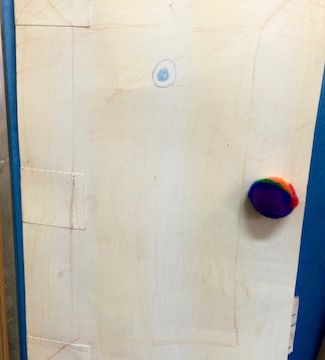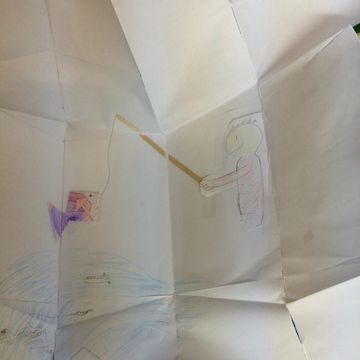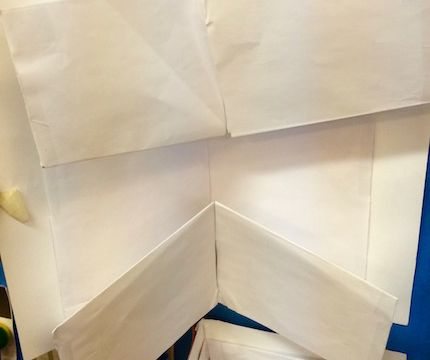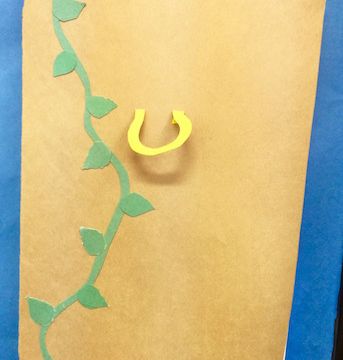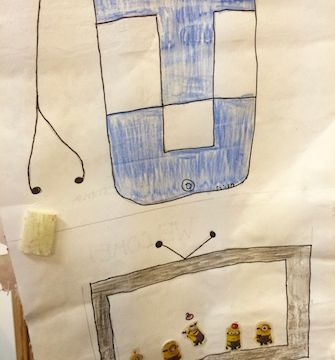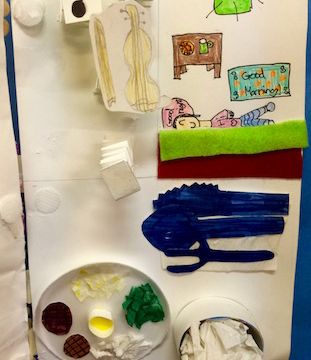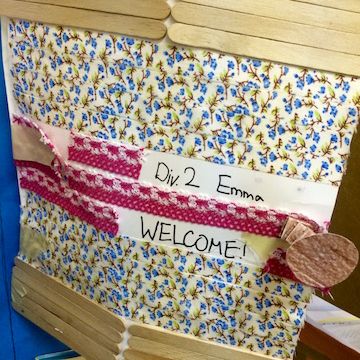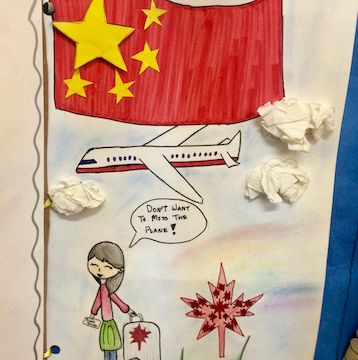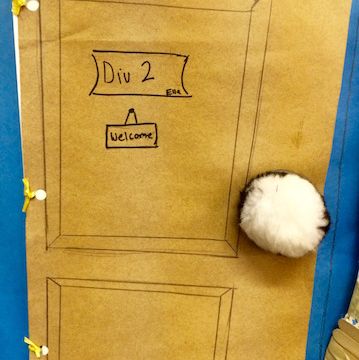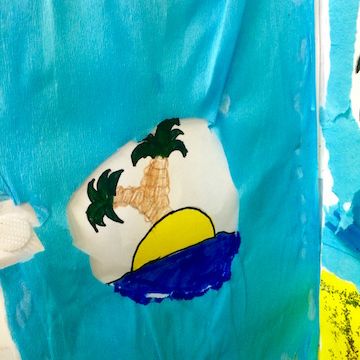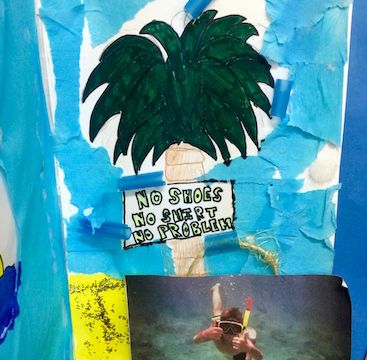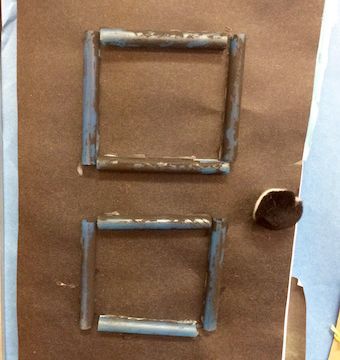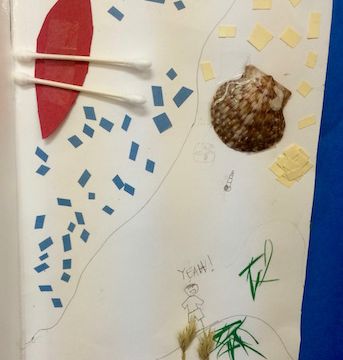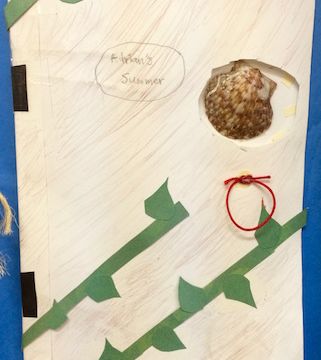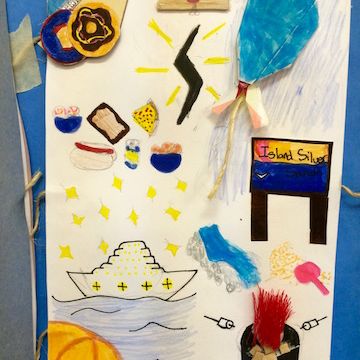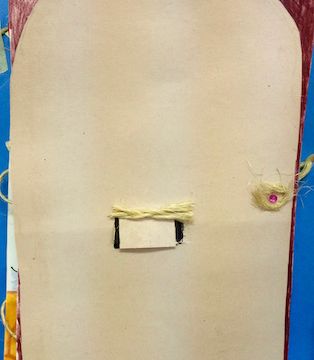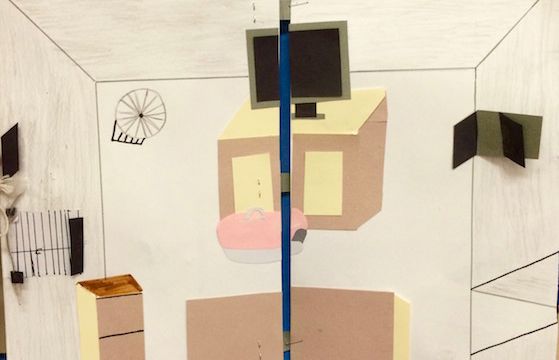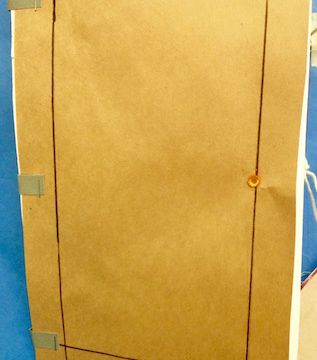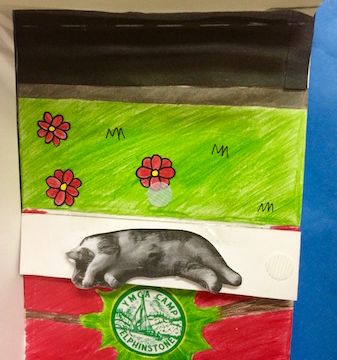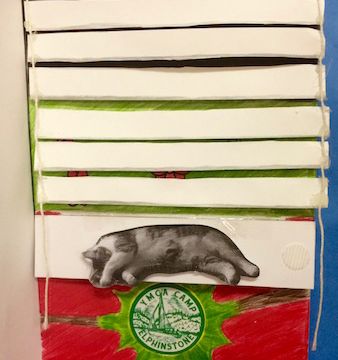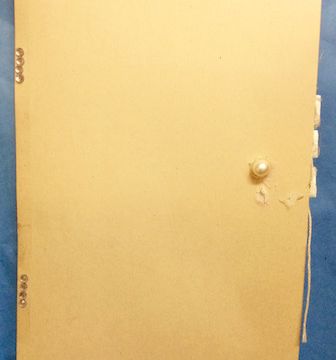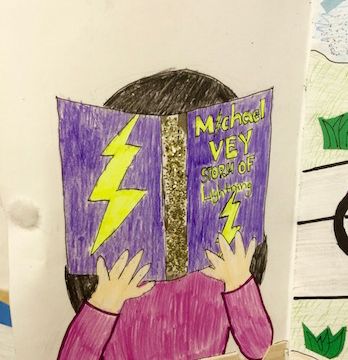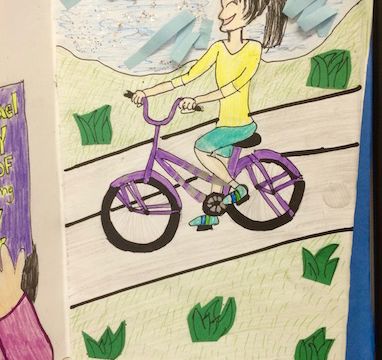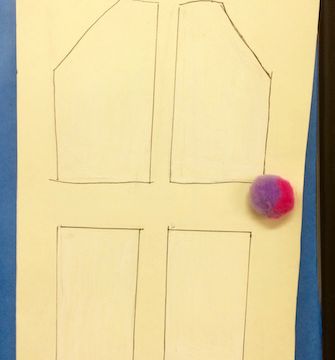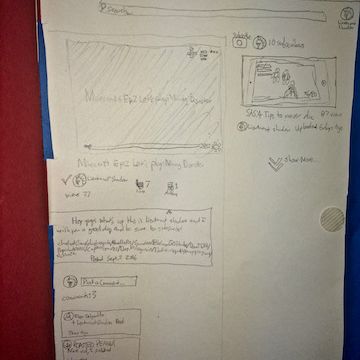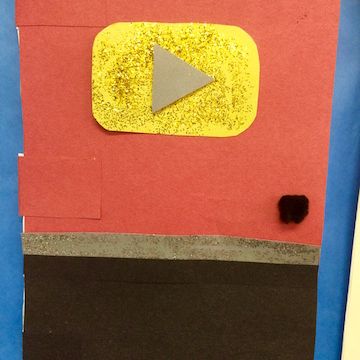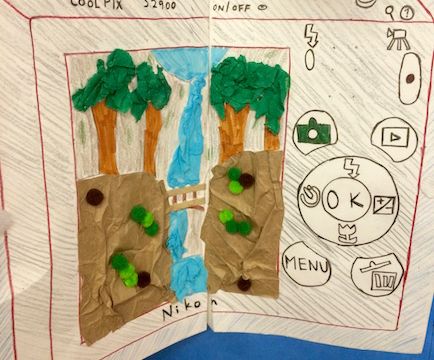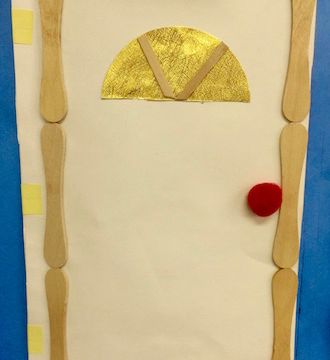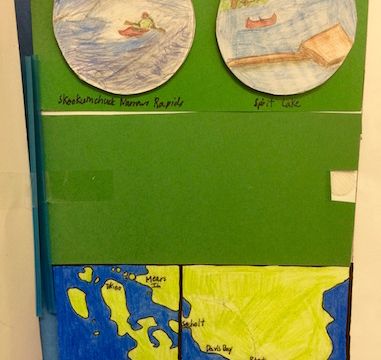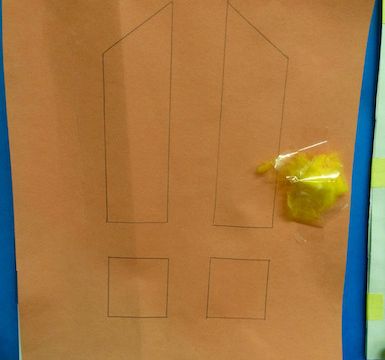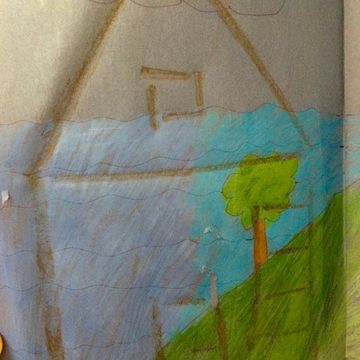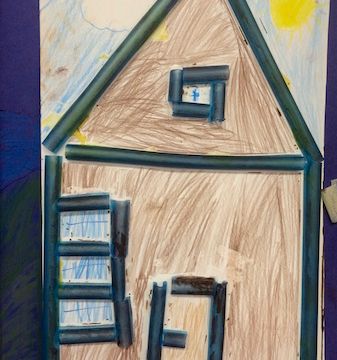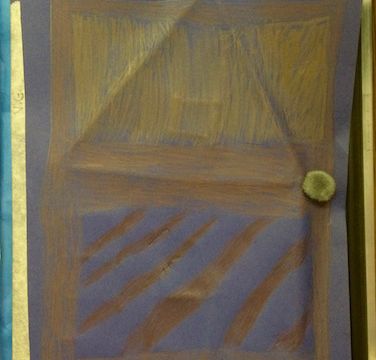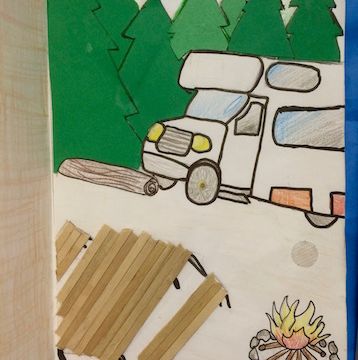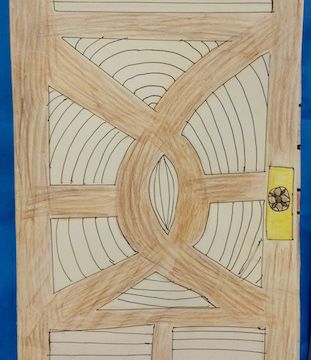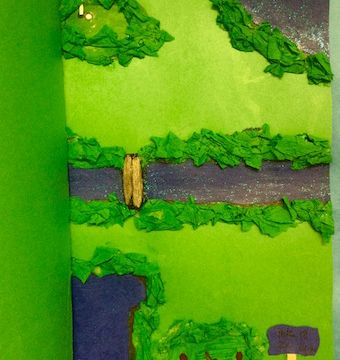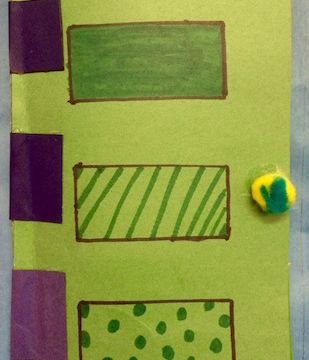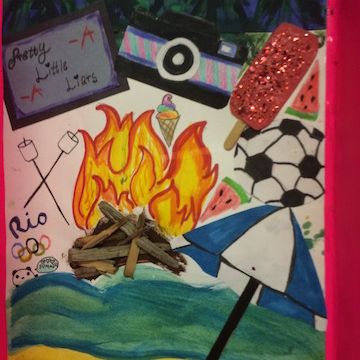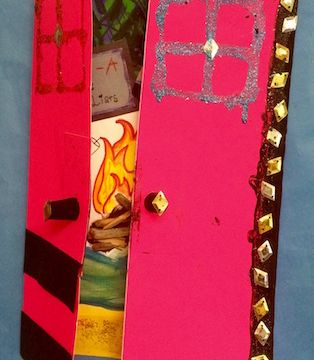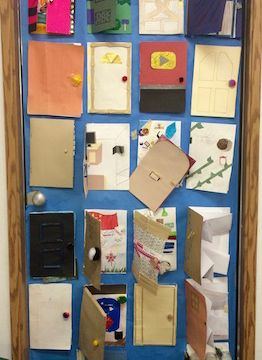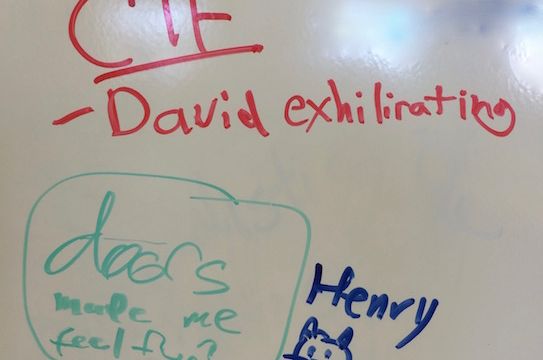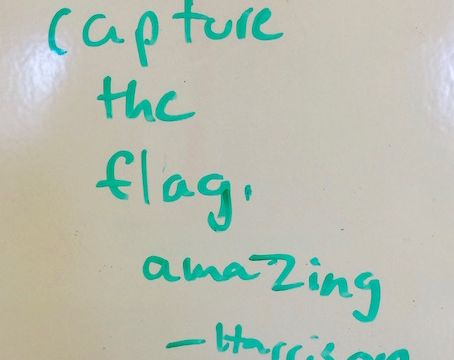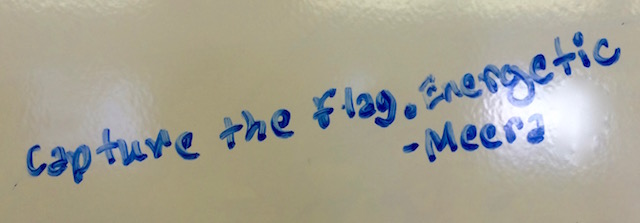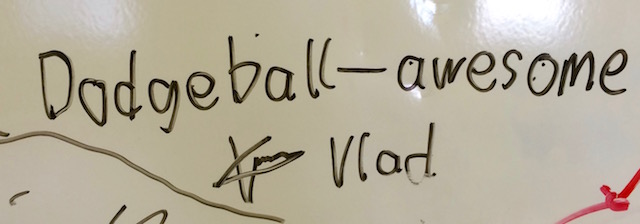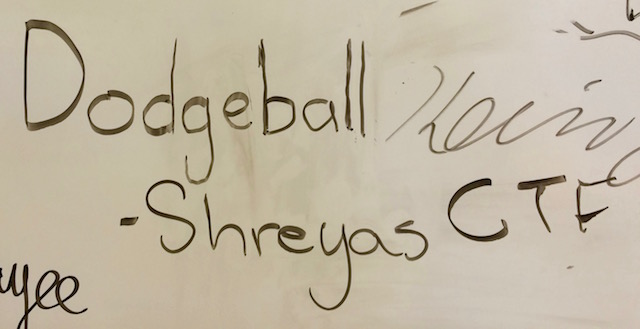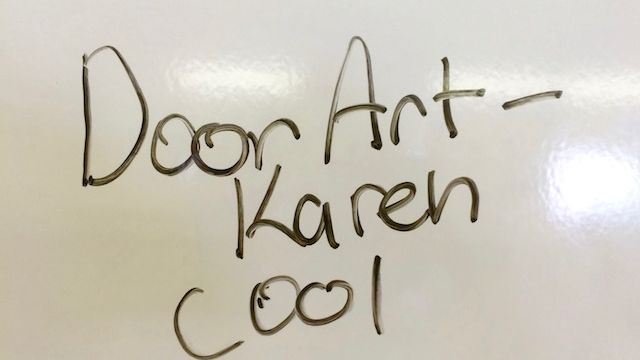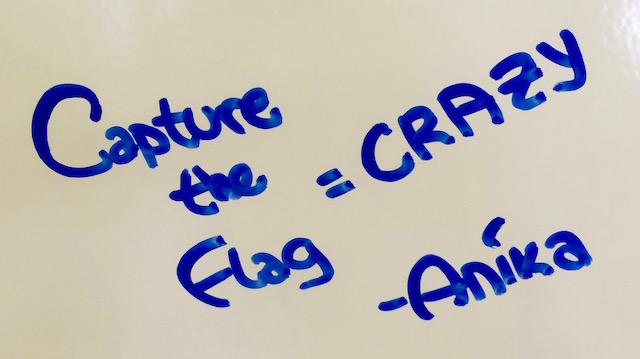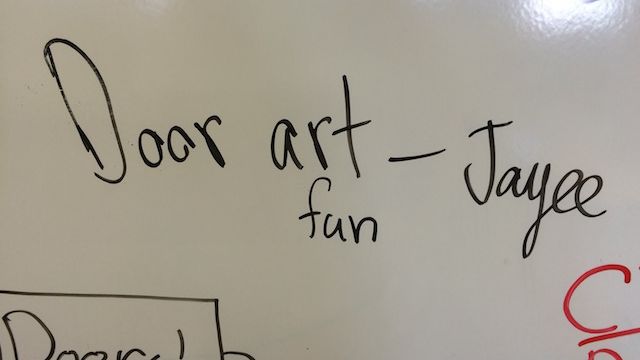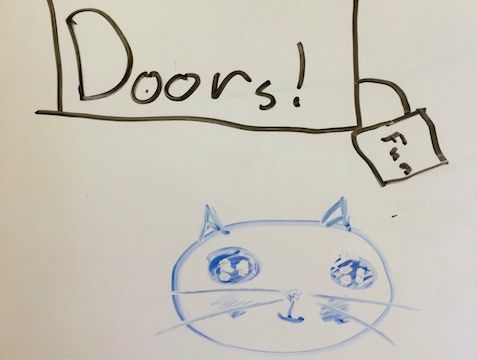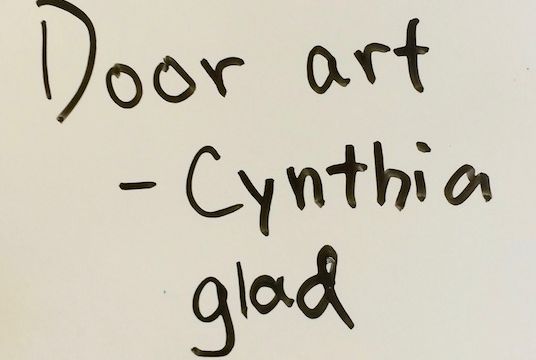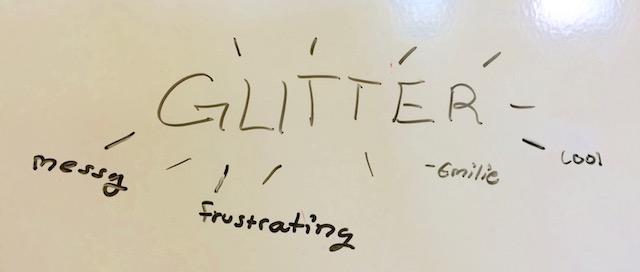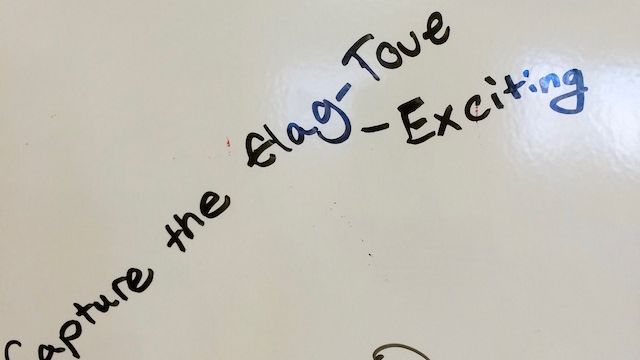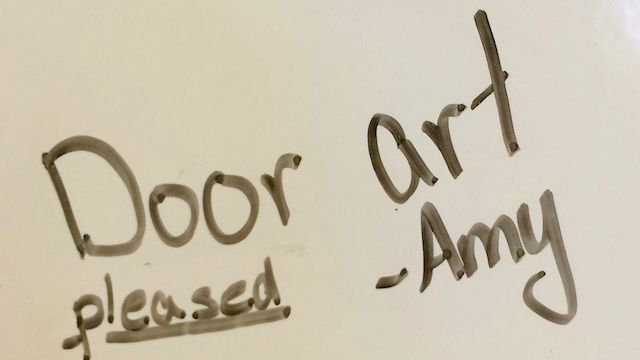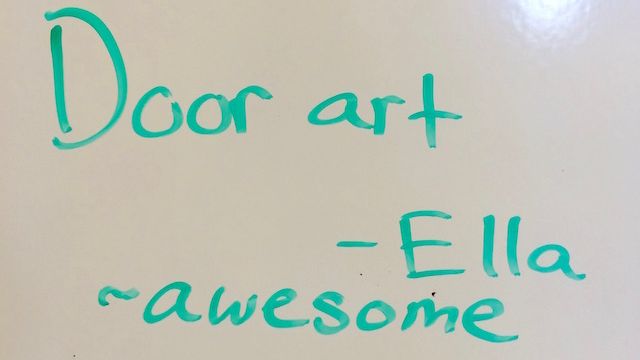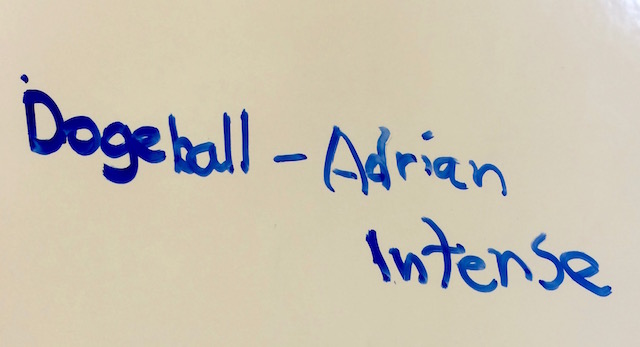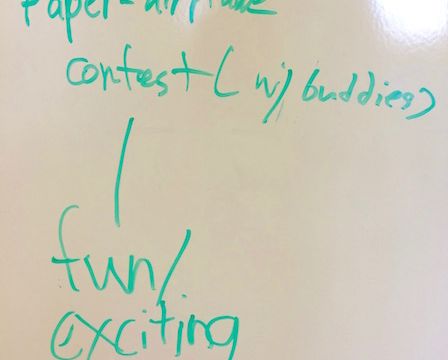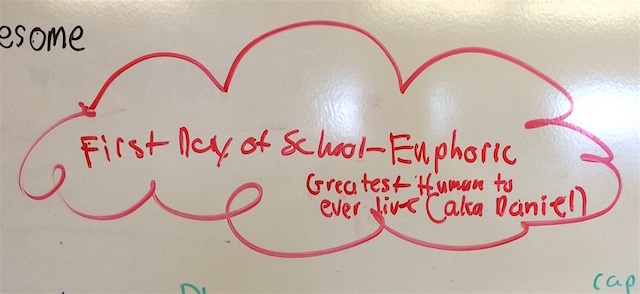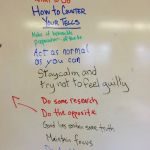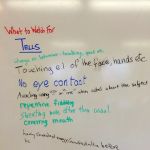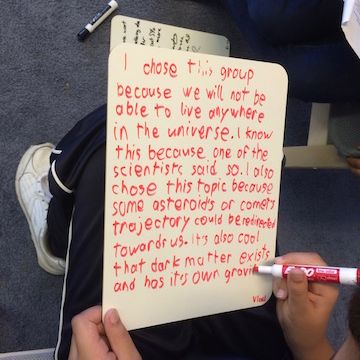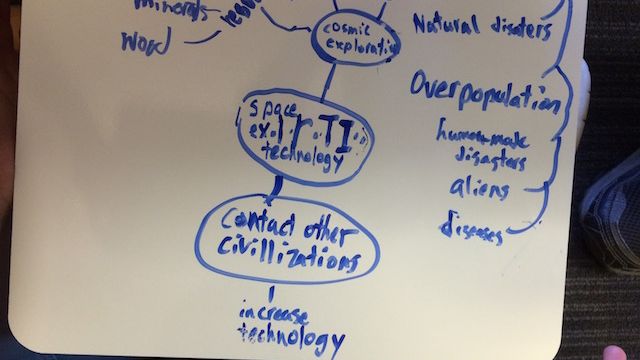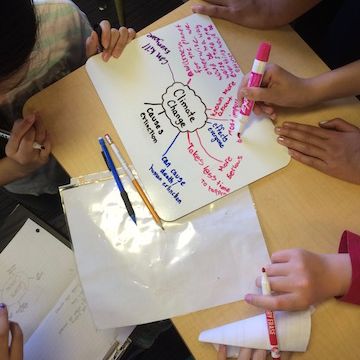So, week two down.
This was the opening day welcome message – my guesses based purely on last names; I had a pretty poor batting average (and my Korean needs a little fine-tuning…)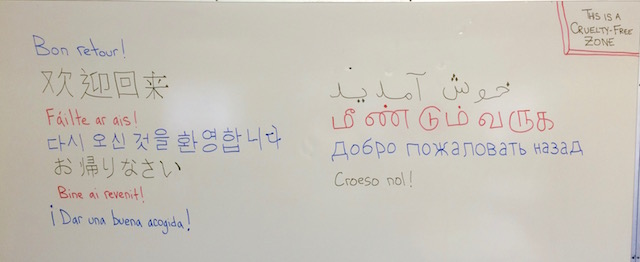
Our first enigma to unravel…
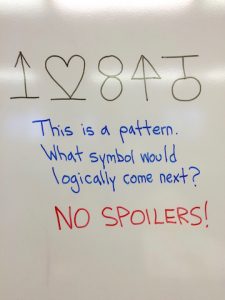
…which, oddly, no one has ventured a guess for, yet – get to work, people!
Our first interactions, being forced to extract information from each other:
Our first Buddies activity (stolen from the amazing Mr. Bhargava at 2nd Street Community School), in which teams were involved in a paper airplane/paper clip challenge. 3 points per meter flown; 1 point for each paper clip that remained attached to the plane on its landing (we had uneven numbers with our Buddy Class, so some Division 2 students doubled up).
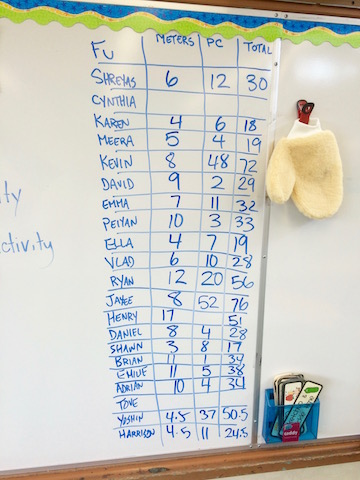
Sorry about the last minute explosion, Fu. Amazing flight, Henry. Congratulations, Jayee! So close, Kevin!
I must say, it was great to see everyone dive into this activity with such enthusiasm and creativity, and to be so vigilant about keeping their little buddies involved.
During the first week, Suncrest had a school-wide door decorating challenge with the following criteria:
- a theme of “What I Did This Summer”
- incorporate a variety of materials and textures
- bright and colorful
- representative of the whole class
- thoughtful (planned, not rushed)
- neatness in presentation
Division 2 quickly generated a host of outside-the-box ideas, and then each student was given three stickers to place next to their favourites:
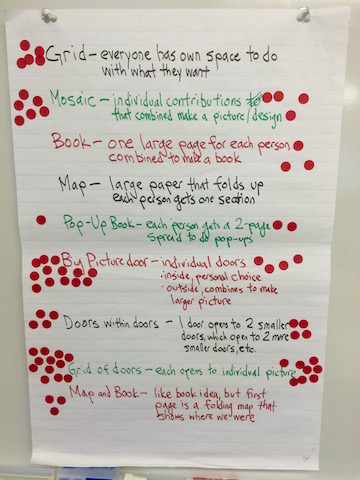
(I’m a little sad the doors within doors idea will never see the light of day, but time management was important here…)
Once the grid of individual doors idea was settled upon, and certain perimeters were established by student suggestion – personal choice for inside image, hinges, and doorknob; outside of door to look realistic – everyone quickly got to work.
Yoshin did some quick and mind-bending math to determine the dimensions for each door…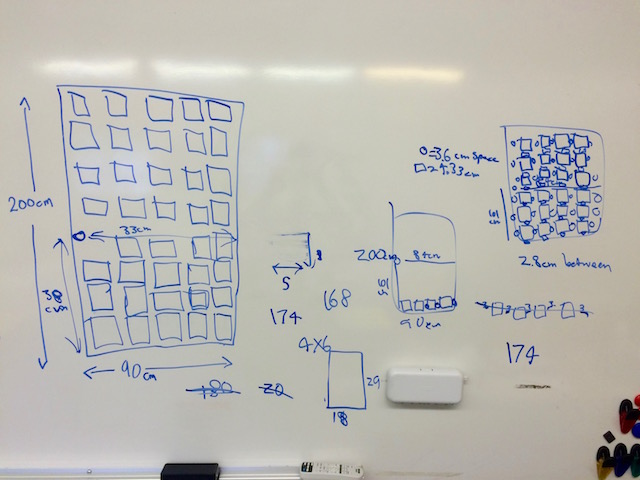
…and David provided a valuable assist by reminding us all how big a piece of paper actually is. A humbling reminder to not overlook the obvious…
It was, frankly, exhilarating to get a first glimpse of the individuality and extreme focus our class is capable of demonstrating (you played your hand too soon, MACCsters – now that I know what you’re capable of, I’ll be holding you to it!). It was very moving to see such creative thinking and thoughtfulness of intention in progress.
The winner remains unannounced, but I think it’s fairly safe to say that we learned that the process is more important than the outcome (even when the outcome is pretty spectacular).
At the end of our short first week, students left a note on the board about what their favourite activity had been and how it made them feel:
Suffice to say that you don’t need to be an advanced learner to pick up on the trends…
Week two has been action packed – if by “action packed” you mean many hours of math diagnostics, with everyone insisting that they also try at least one grade above their own. That being said, it has been heartening to see how honest people have been about reaching their “I’m out” level, and to do so with good humor.
In between extending patterns on T-tables and solving for x, we have also:
- Begun practice of our observational skills by learning how to spot a liar and, by default, how to tell a successful lie (watch out, parents of Emilie and Anika: they showed particular talents in this area!)
-
- Listened to a Quicks and Quarks podcast and paid attention to how scientists communicate their ideas
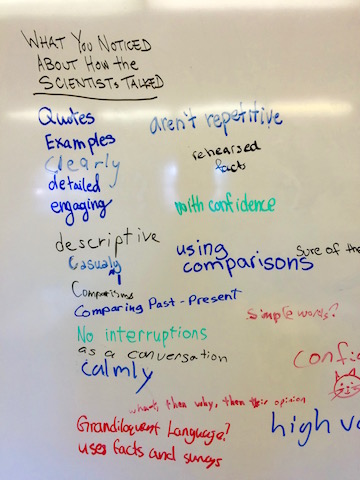
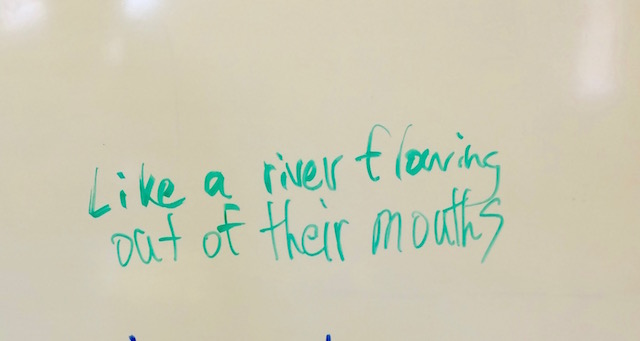
- Looked at a possible way of taking notes in order to use the least words possible and find connections between ideas
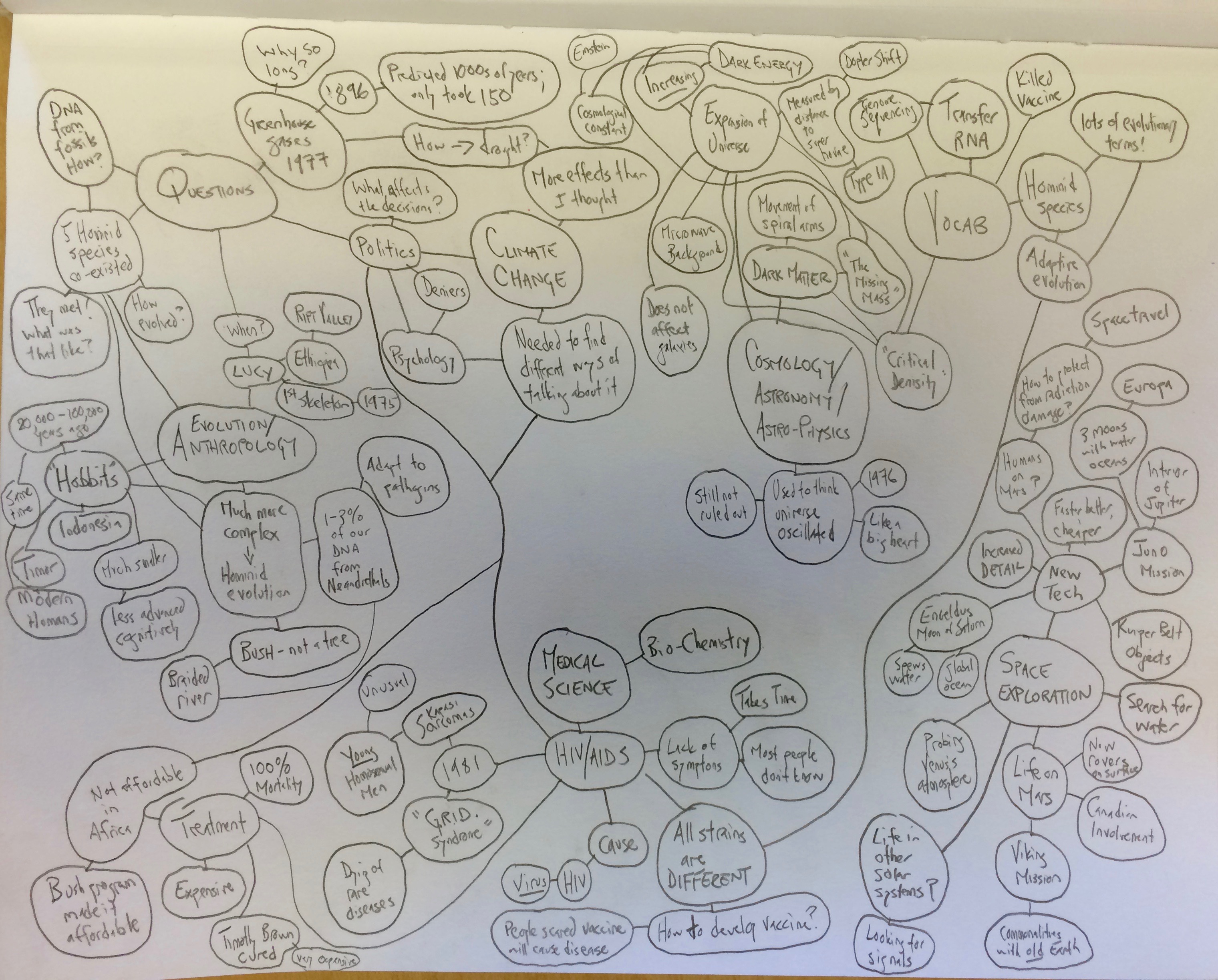
- Worked in our first groups to try to convince others which of the scientific advancements described in the podcast was the most important for human civilization
(everyone made good first steps in group work and communication, and Vlad and Karen gave us all a good lesson in the value of research and practice)
- Learned how to play the card game “Golf” as an intro to our first writing assignment (extra homework: teach your family how to play the game!)
- Started work in our comp books, using Lynda Barry’s pedagogy as a guideline
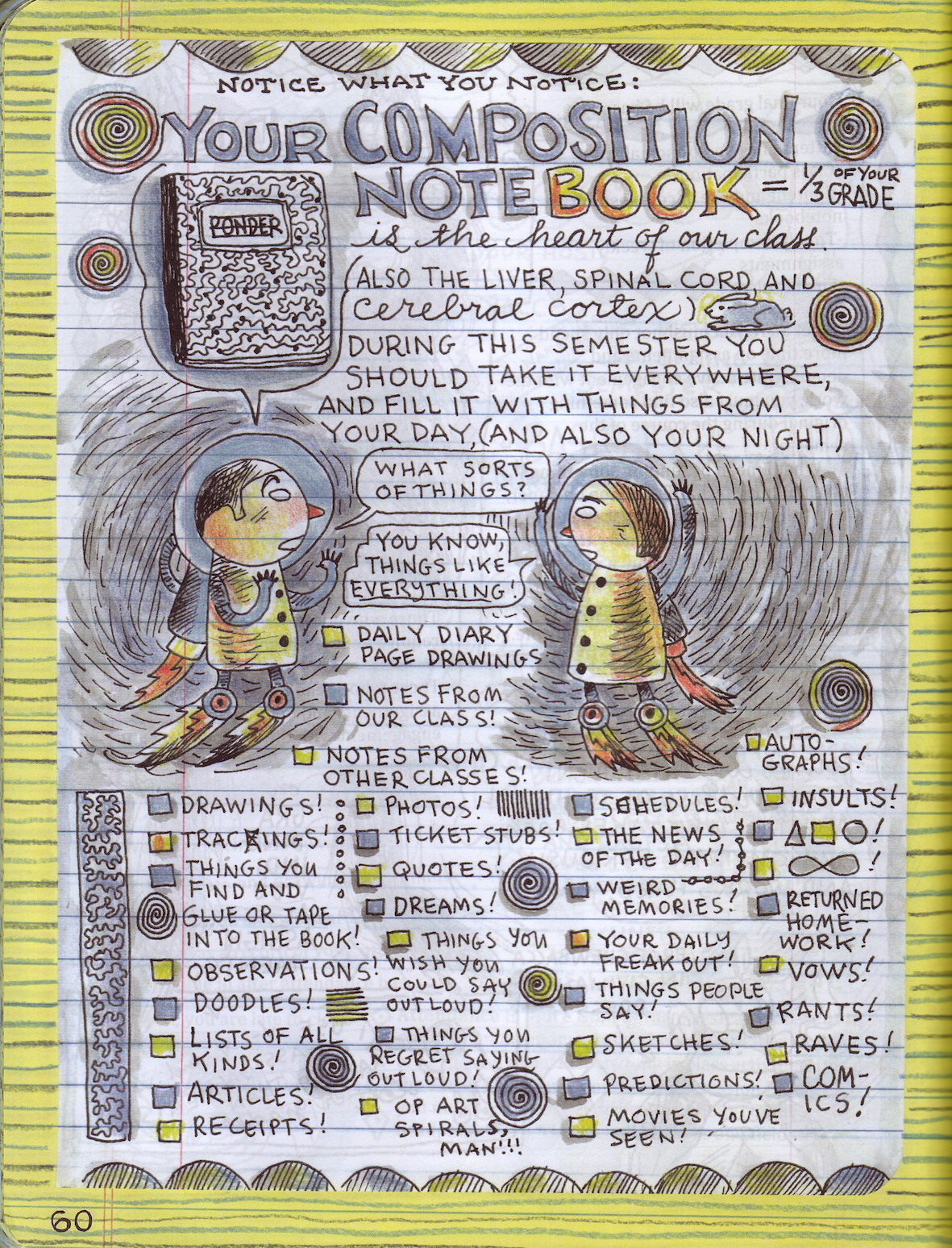
(from Syllabus – Notes from an Accidental Professor; Drawn & Quarterly: 2014)
Most students have been on fire with this form of reflection! Already, these comp books are exquisite glimpses into the heart and minds of Division 2, and again reflect a beautiful diversity of ways of viewing and experiencing the world. The comp books will be the fuel that helps build our year-old self-inquiry project. More on that to come.
One aspect of the comp books is keeping an on-going list of things seen and heard that are unexpected, unusual, odd, or surprising. The first try at this produced some hilarious results:
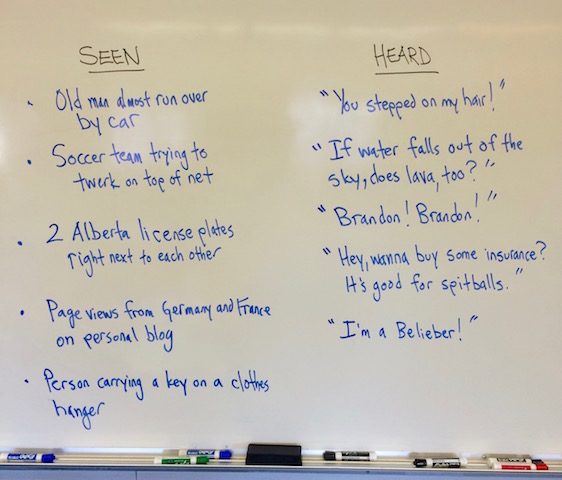
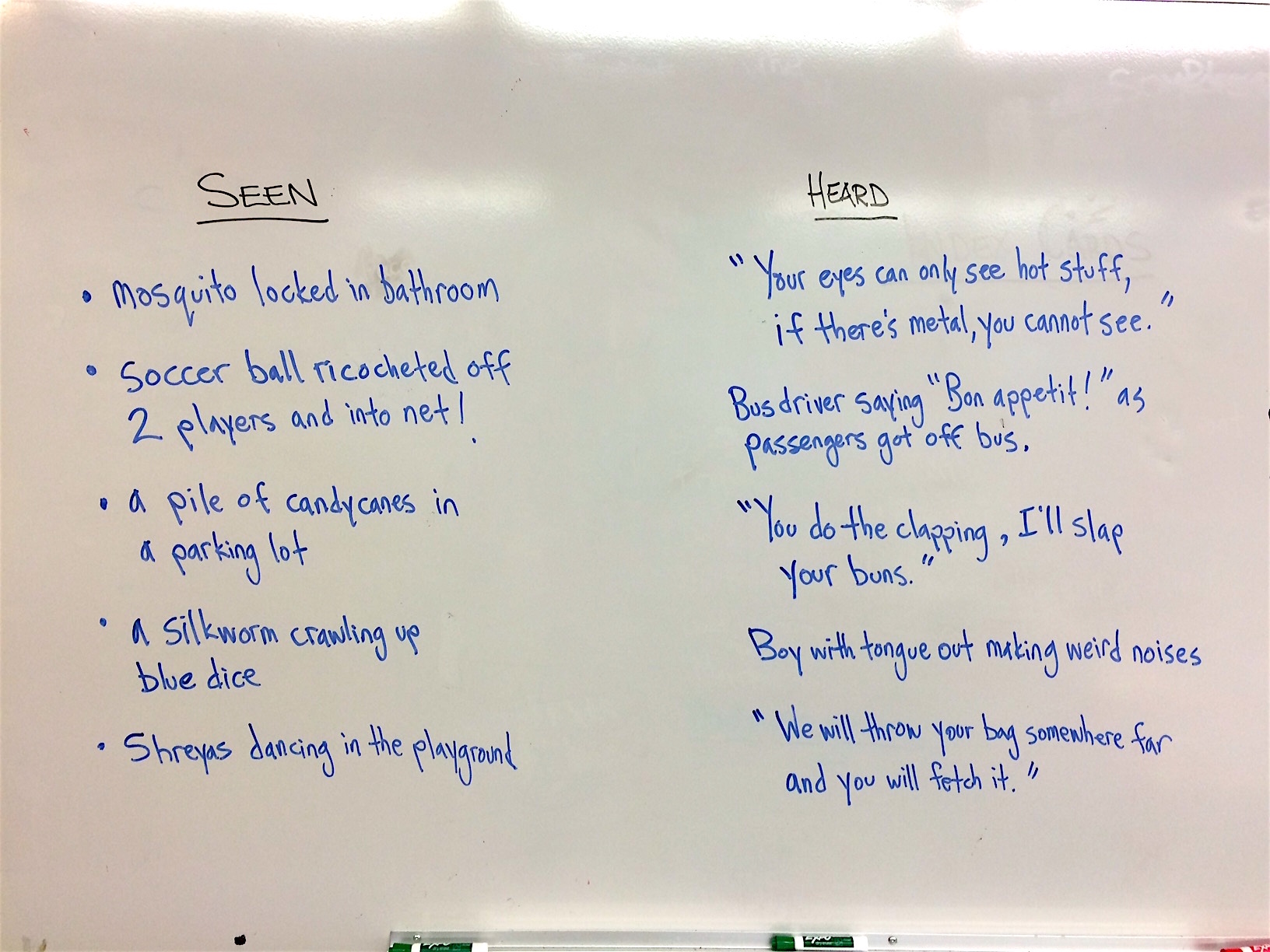
- Watched an episode of The Mind of a Chef to learn about the very gifted chef, writer, and human being, Gabrielle Hamilton. After, everyone shared observations about how she communicated her ideas, and then we came up with suggestions as to how we might apply what we saw of the inner workings of her restaurant to our life together in the classroom.
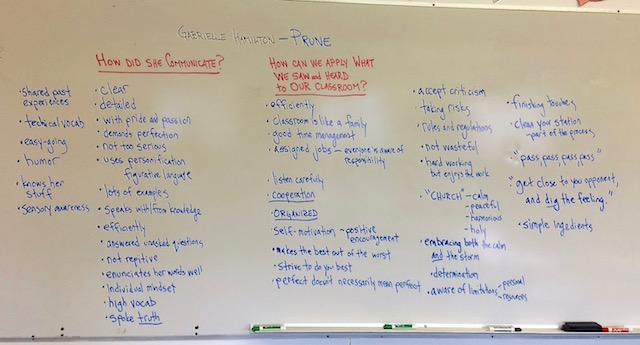
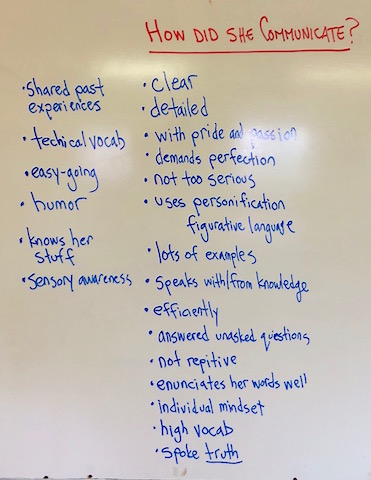
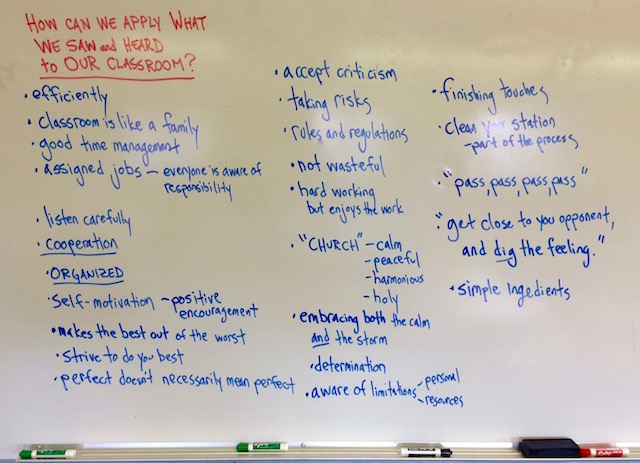
- Building off of Ms. Hamilton’s espousal of the All-Important Second and Third Follow-up Questions when talking to people, as a signifier of real interest and not just a marking of time before launching into your own monologue, we practiced extending conversations by being put into random pairs and going for a walk. Partner One could only ask questions, preferably questions that probed for a deeper understanding of a given topic, while Partner Two strove for greater clarity in her or his explanations.
- And finally, everyone was given their alter ego for the term (thanks again, Lynda Barry!). Good-bye, Adrian; hello, Basal Ganglia!
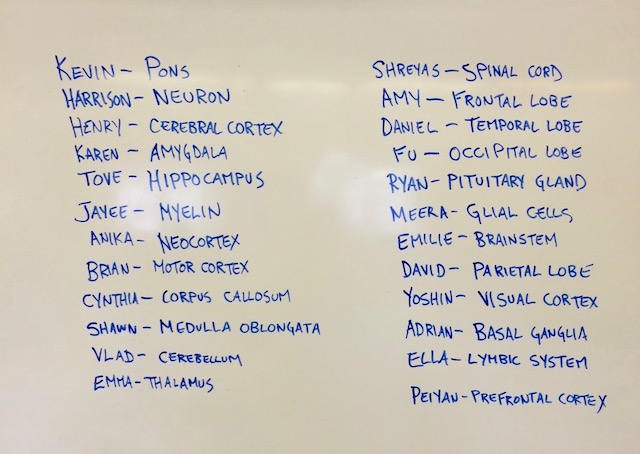
It’s been a good start. Lots of great conversations, lots of creative and strategic thinking, lots of keen observations, lots of resoundingly silent-yet-active reading – and lots of, of course, dodgeball.

